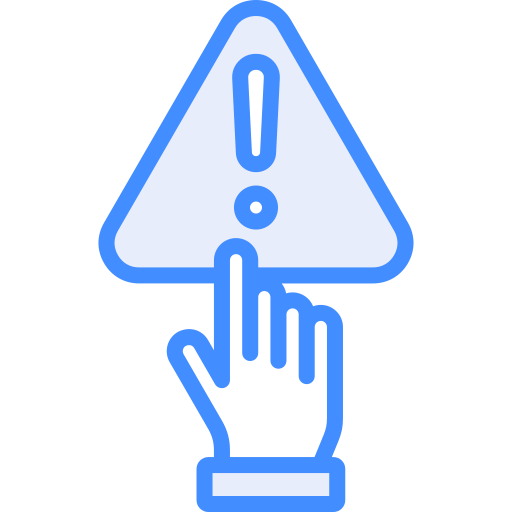Payday Lenders in Nevada
Payday Loan Laws
Payday loans are governed by the Commissioner of the Nevada Financial Institution Division, under these statutes payday loans are referred to as deferred deposit loans or high-interest loans. All payday lenders must be licensed by the state, including online lenders and the regulations require that lenders offer repayment places before they can begin any civil action for non-payment. It is important to note that the regulations do not give an official limit to the amount that can be borrowed or the maximum interest rates and fees. This means that Nevada lenders can assess whatever APR they choose, leading to extremely high repayment terms.
The State of Nevada has several other pieces of legislation surrounding payday loans:
- Nev. Rev. Stat. §604A.010: Regulates the amount that can be financed, based on monthly income and loan terms.
- Nev. Rev. Stat. §604A.5018: Limits the number of outstanding loans to one per lender.
- Nev. Rev. Stat. §604A.5029: Permits rollovers as long as they do not extend the term by more than 60 days or charge an APR of more than 200%. It also gives the borrower the ability to rescind the new loan within 5 days.
- Nev. Rev. Stat. §604A.5027: Requires that a repayment plan be offered to the borrower before the lender can take civil action

Loan Terms and Conditions
Maximum loan amount: 25% of gross monthly income
Maximum Interest Rate: No maximum defined by regulation
Minimum loan term: No minimum
Maximum loan term: 35 days
Number of rollovers allowed: Allowed based on specific criteria outlined in statue
Finance Charge: No maximum defined by regulation
Legal action: 6 Years
Certified Payday Lenders in Nevada
| Company Name | Company score | License Status |
| CURO Intermediate Holdings | 7.8 | Valid |
| ENOVA INTERNATIONAL, INC. | 7.5 | Valid |
| Check City Partnership, LLC | 6.9 | Valid |
| COMMUNITY CHOICE FINANCIAL, INC. | 6.5 | Valid |
| DLC, LLC | 5.8 | Valid |
| Moneytree Inc | 5.7 | Valid |
History of Nevada Payday Loans
How to file a complaint
- ADDRESS
- 3300 W Sahara Avenue, Suite 250, Las Vegas, NV 89102
- 702-486-4120
- Website
Nevada Payday Loans Debt Relief
How to Get out of Payday Loan Debt?
Types of Quick Loans in Nevada
Alternatives to Payday Loans in Nevada
Personal Loans
Personal loans can be used for any number of purposes, including debt consolidation, home improvement, and unexpected expenses. Personal loans in Nevada are usually unsecured. This means they do not require collateral, and instead approval is determined by the credit rating of the borrower. Personal loans have varying interest rates based on a number of factors including income and credit scores. Personal loans can be repaid over a period of several months or several years with banks, credit unions and online lenders are all sources of personal loans. When applying for a personal loan, it is crucial to compare the rates and fees to make sure that the loan fits the borrower's budget.
Land Loans or Lot Loans
Land loans in Nevada provide financing options for individuals seeking to purchase or refinance land for various purposes, such as residential development, recreational activities, or investment opportunities. These loans enable borrowers to acquire vacant or undeveloped land and unlock its potential value. Nevada land loans typically come with unique considerations, including assessing the property's location, zoning restrictions, and potential for future development. Lenders may require a down payment and conduct thorough evaluations to determine the land's value and suitability for the intended purpose.
Construction Loans
Construction loans can be used to fund the building of a home or commercial property. Generally, these short-term loans cover materials, labor costs and other expenses associated with construction. Loan terms and conditions differ between lenders but typically require at least 20% down payment as an upfront cost. Borrowers must demonstrate good credit and their ability to repay the loan on time.
Bad Credit Loans in Nevada
Nevada bad credit loans are for those with low credit scores and limited credit histories. The lenders may charge higher fees and interest on these loans, as they are taking more risks. Also, the loan amount may be smaller. Secured loans for bad credit may require collateral such as a vehicle or savings account. Unsecured loans do not have the same collateral requirements. Borrowers with poor credit should compare fees and terms before taking out a loan, because the costs could be higher.
Nevada Small Business Loans
Nevada provides several types of small business loans with different requirements and terms:
- SBA loans: Loans that are backed by the U.S. Small Business Administration, which offer lower interest rates and longer repayment terms than conventional loans.
- Nevada Microenterprise Initiative: Provides loans and training for entrepreneurs and small business owners who lack access to traditional bank financing.
- Nevada State Development Corporation: Provides SBA 504 loans for the purchase of commercial real estate and equipment.
- Business Lines of Credit: A business line of credit provides a revolving credit line that can be drawn upon as needed, up to a certain credit limit. These loans can be useful for businesses that experience seasonal fluctuations in revenue or have unpredictable cash flow.
- Microloans: These loans are designed for small businesses that need a smaller amount of funding, typically up to $50,000. The funds can be used for working capital, equipment, inventory, and other expenses.
VA loans in Nevada
VA loans in Nevada are available to veterans and active-duty military members and are designed to help them purchase a home with little to no down payment. These loans are backed by the U.S. Department of Veterans Affairs, and offer several advantages over traditional loans, including lower interest rates and no private mortgage insurance requirement. Additionally, VA loans have more flexible qualification requirements, making them an attractive option for those who may have difficulty meeting traditional loan criteria. To be eligible for a VA loan, borrowers must meet certain service requirements and have a Certificate of Eligibility.
Nevada Student Loans
Many options are available to Nevada students to help finance their college education. These options include:
- Federal Student Loans: Loans provided by the federal government offering low-interest rates and flexible repayment plans.
- College Access Loan (CAL): his program is offered by the Nevada State Treasurer's Office and provides low-interest loans to Nevada residents who are enrolled in a degree-granting program at an eligible institution. Students can borrow up to $10,000 per academic year.
- Governor Guinn Millennium Scholarship: This scholarship is available to Nevada high school graduates who have completed a rigorous high school curriculum and earned a cumulative GPA of at least 3.25. It provides up to $10,000 in scholarship funds over four years.
- Private Student Loans: Loans from private lenders, they commonly have higher interest rates and may require a co-signer.
Nevada Income Information
United States Census Bureau. “Poverty in the United States: 2021.” Accessed on April 29, 2023.
United States Census Bureau. U.S. Census Bureau QuickFacts: Nevada. Accessed on April 29, 2023.
Nevada Payday Lender Complaints
| Company Name | Count |
| CURO Intermediate Holdings | 29 |
| ENOVA INTERNATIONAL, INC. | 20 |
| Check City Partnership, LLC | 12 |
| COMMUNITY CHOICE FINANCIAL, INC. | 11 |
| DLC, LLC | 10 |
| Moneytree Inc | 7 |
| Total Complaints | 219 |
Consumer Financial Protection Bureau. Consumer Complaint Database. Accessed on April 29, 2023.
Most Common Issues
| Complaint type | Count |
| Charged unexpected interest or fees | 25 |
| Can’t contact lender | 16 |
| Received a loan didn’t apply for | 9 |
| Incorrect information on report | 5 |
| Problems with process at end of loan | 4 |
What are the main reasons residents of Nevada apply for payday cash advance online or offline
Payday loans are typically used for nonnegotiable everyday expenses like your rent, utilities, and groceries. Per data reported by Pewtrust, the percentage of reasons described below
| Reason | Share |
| Regular Expenses (Utilities, car payment) | 53% |
| Unexpected emergency/expense | 16% |
| Rent/Mortgage | 10% |
| Something Special | 8% |
| Other | 5% |
| Did not answer | 2% |
Payday Lenders by City
- Las Vegas
- Henderson
- Reno
- North Las Vegas
- Enterprise
- Spring Valley
- Sunrise Manor
- Paradise
- Sparks
- Carson City
- Whitney
- Pahrump
- Winchester
- Summerlin South
- Sun Valley
- Fernley
- Elko
- Mesquite
- Spanish Springs
- Spring Creek
- Dayton
- Boulder City
- Gardnerville Ranchos
- Cold Springs
- Incline Village
- Fallon
- Winnemucca
- Laughlin
- Moapa Valley
- Johnson Lane



